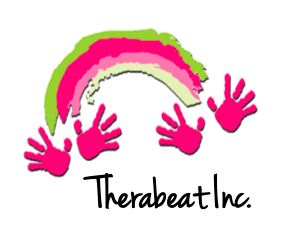As research develops regarding music therapy and mental health, the types of conditions that music interventions can assist with have increased. Obsessive Compulsive Disorder (OCD) is identified in The Diagnostic and Statistical Manual of Mental Disorders (5th ed.; DSM–5) as having obsessions, compulsions, or both that are time consuming and not attributed to the effects of a substance, medical condition, or another mental disorder. These obsessions, defined as “recurrent thoughts, urges, or images,” and compulsions, defined as “repetitive behaviors or mental acts” such as counting, creating symmetry, cleaning, etc., can impede activities of daily living and cause other mental health conditions such as anxiety or depression (American Psychiatric Association, 2013). While there is not an abundance of research with music therapy and patients with OCD, some strategies have been effective in helping the effects of OCD in individuals.
In order to address music therapy techniques for patients with OCD, the foundations of general counseling and therapeutic techniques must be considered. Some widely-used treatments for patients with OCD include medication such as Selective-Serotonin Reuptake Inhibitors (SSRIs) and exposure-response prevention, a method of desensitization (Abdulah, et al., 2018). However, other approaches are more applicable to the function of a music therapy session such as the cognitive-behavioral approach of restructuring thoughts to normalize the patient’s view of their condition (Salkovskis, 1999). Instead of invalidating and minimizing the client’s obsessions and compulsions, the therapist should lead the client in the “identification of key distorted beliefs and the collaborative construction of a non-threatening alternative account of their obsessional experience and preoccupations” (Salkovskis, 1999, p. 36). Cognitive-behavioral approaches have been effective in talk-therapy settings, so similar affirming and normalizing counseling techniques should be used to approach music therapy sessions with people with OCD.
As far as specific techniques, receptive music listening has been a commonality across multiple studies with patients with OCD. Studies have found that “receptive music therapy helped reduce obsessive symptoms with comorbid anxiety and depression” (Truong, et al., 2021, p. 3). The receptive music interventions in these studies took the form of independent listening, lyric analysis, or music relaxation, and classical music was found to be the most effective genre for these types of interventions. The lyric analysis was structured by recalling obsessional thoughts, relating the lyrics to the feelings about their obsessions, and guided-imagery relaxation followed by therapeutic reflection discussion (Shirani Bidabadi, 2015). One study showed a reduction in the severity of overall OCD symptoms in individuals who listened to classical and sleep music for 50 minutes every day independently (Abdulah, et al., 2018). All of these treatments were used as adjuncts to other therapy and medication approaches. However, implementing them into sessions with patients with OCD, even if their primary goal is not related to this diagnosis, can help regulate the client so they can achieve their other goals.
Receptive music therapy approaches have been more researched with this population; however, active interventions such as “improvisational music therapy might also alleviate symptoms in OCD patients” (Truong, et al., 2021, p. 3). Allowing music improvisation within a session when someone is expressing obsessions, exhibiting compulsions, or experiencing anxiety or distress can potentially improve the outcome of the session and achievement of session goals. Providing support for patients with OCD through music therapy interventions can reduce the impact of the symptoms so the patient can resume daily and social activities more easily (Abdulah, et al., 2018). While the established techniques to implement with clients with OCD are limited due to the scarcity of research, music has a definitive impact on the symptoms related to OCD and can be implemented to improve the effectiveness of treatment.
-Tess Vreeland, Music Therapy Intern
References
American Psychiatric Association. (2013). Obsessive-Compulsive and Related Disorders. In Diagnostic and Statistical Manual of Mental Disorders (5th ed.).
Abdulah, D. M., Miho Alhakem, S. S., & Piro, R. S. (2018). Effects of music as an adjunctive therapy on severity of symptoms in patients with obsessive-compulsive disorder: Randomized controlled trial. Nordic Journal of Music Therapy, 28(1), 27–40. https://doi.org/10.1080/08098131.2018.1546222
Salkovskis, P. M. (1999). Understanding and treating obsessive—compulsive disorder. Behaviour Research and Therapy, 37, 29-52.
Shirani Bidabadi, S., & Mehryar, A. (2015). Music therapy as an adjunct to standard treatment for obsessive compulsive disorder and co-morbid anxiety and depression: A randomized clinical trial. Journal of Affective Disorders, 184, 13–17. https://doi.org/10.1016/j.jad.2015.04.011
Truong, T. P., Applewhite, B., Heiderscheit, A., & Himmerich, H. (2021). A systematic review of scientific studies and case reports on music and obsessive-compulsive disorder. International Journal of Environmental Research and Public Health, 18(22), 1-23. https://doi.org/10.3390/ijerph182211799

